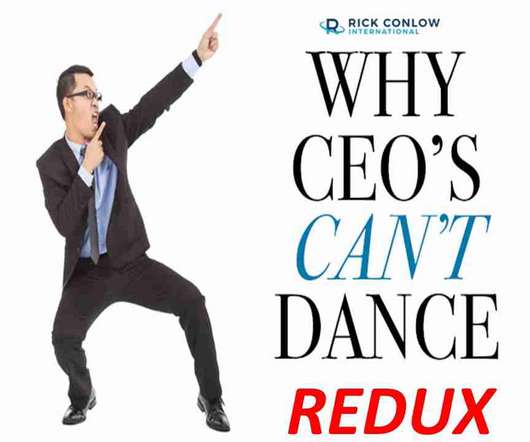Why CEOs Can’t Dance Redux
Rick Conlow
JANUARY 2, 2023
All lights were off except a spotlight on the presenting manager and the CEO’s reading light. to 17.9%, from 1980 to 2015. According to management studies, a key reason leaders derail is that they do not communicate well. hours a week on people management issues. CEOs focus on data, facts, figures, and metrics.













Let's personalize your content